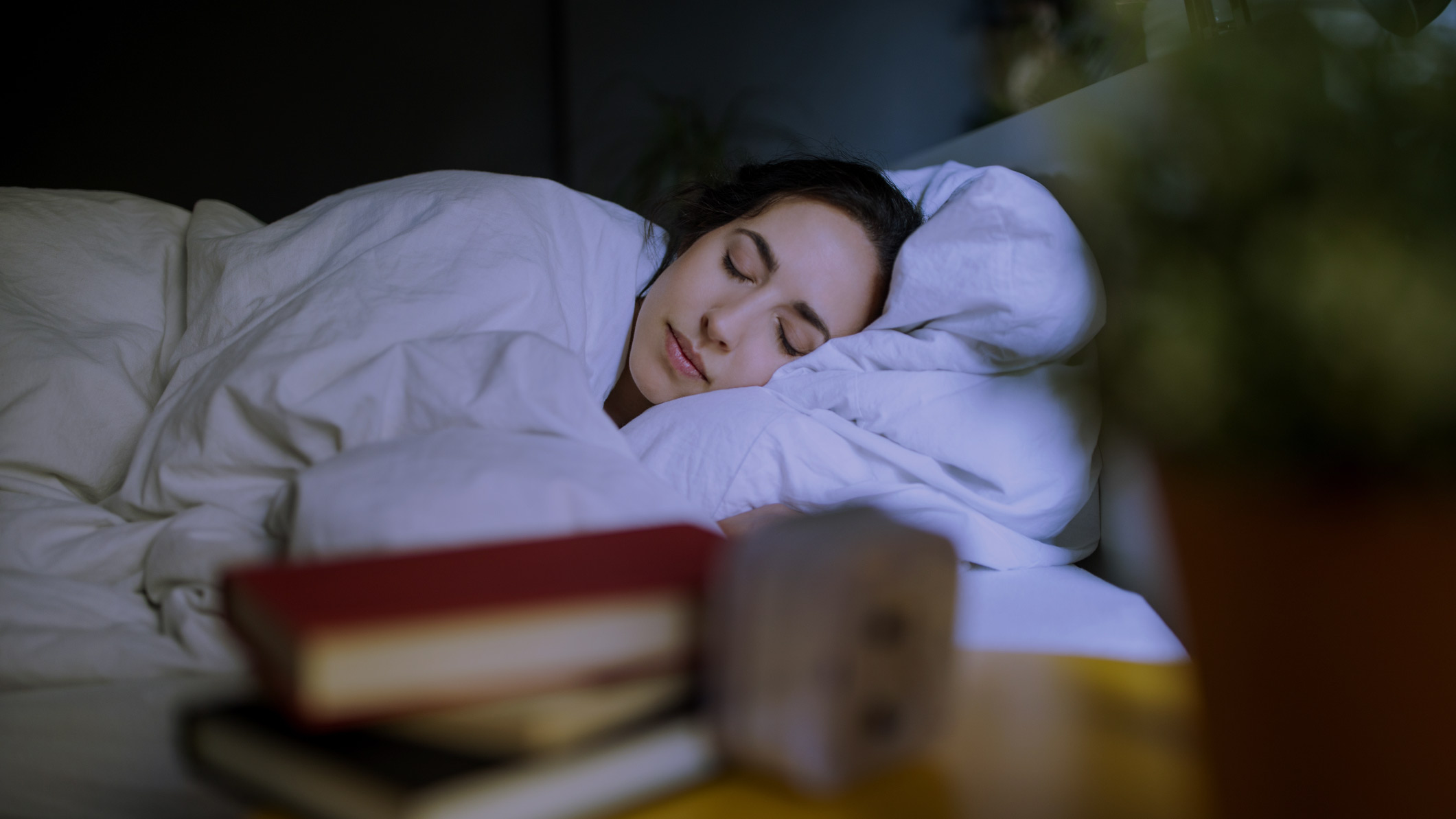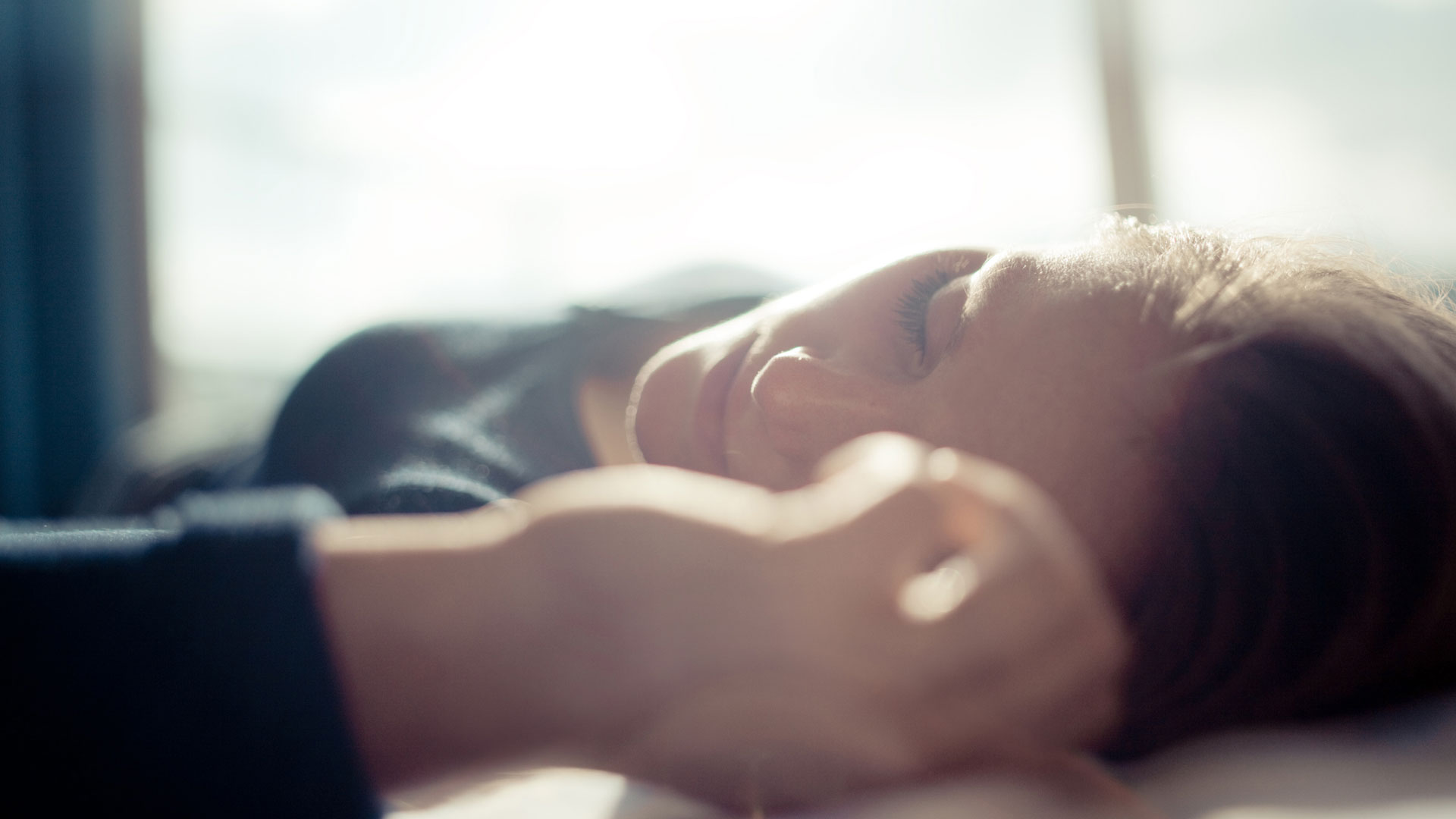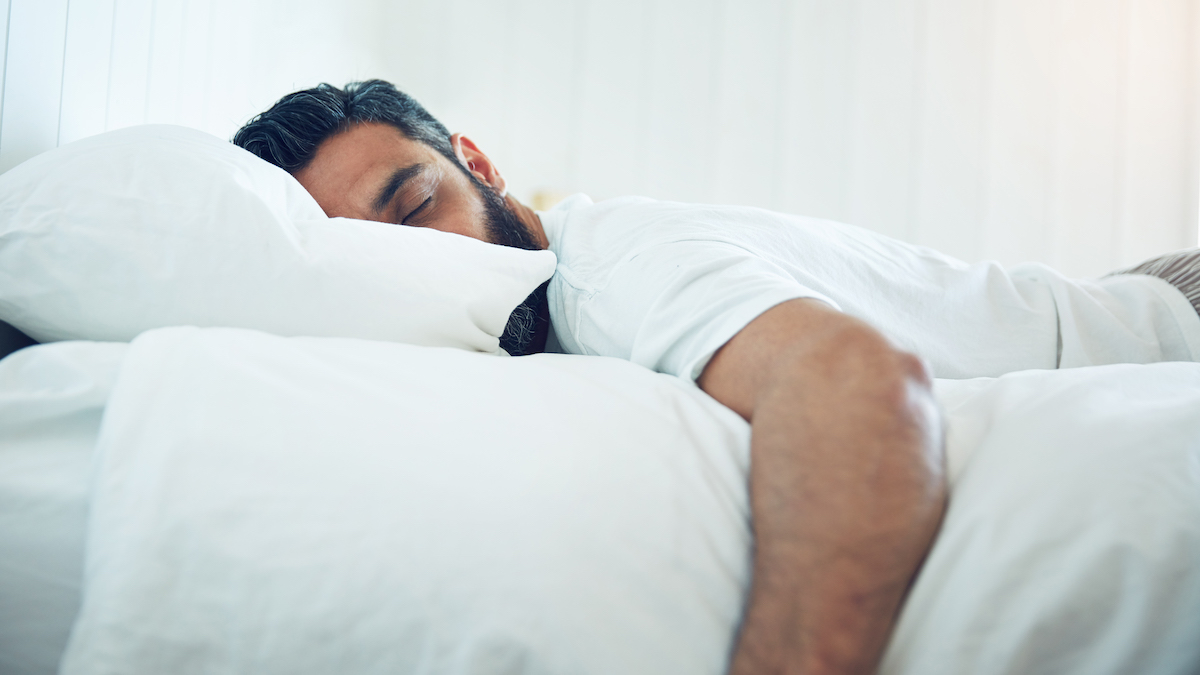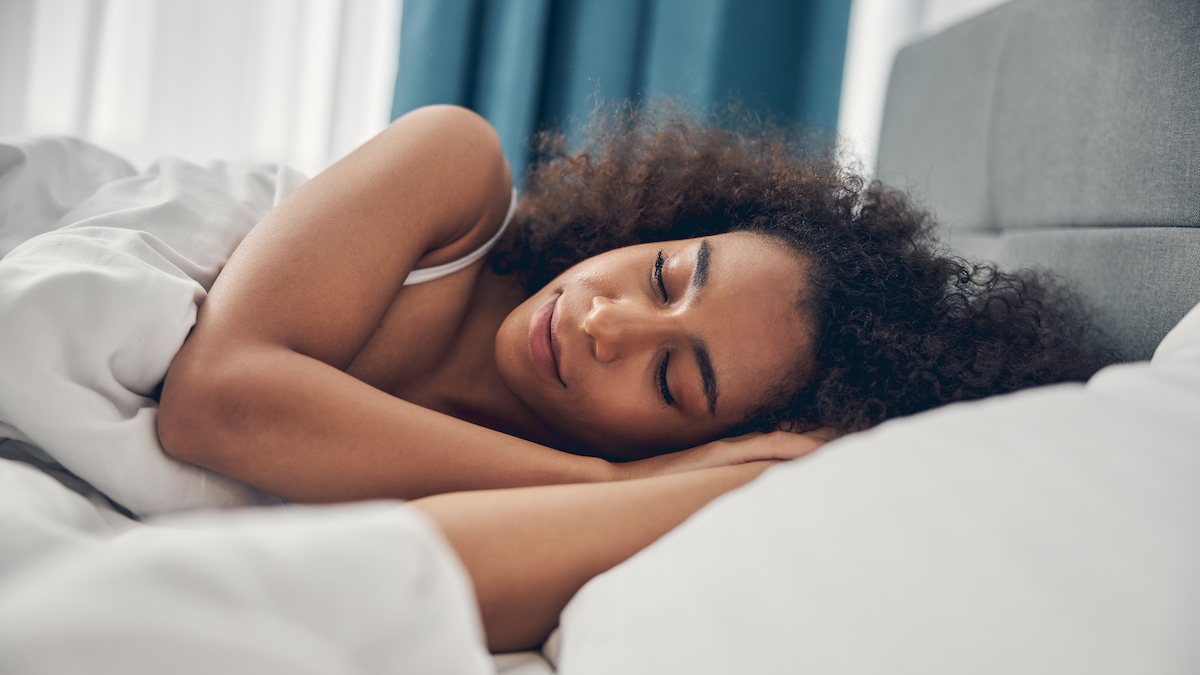
Woken up tired and irritable? It could be down to the amount of REM sleep you’re not getting.
Along with diet and exercise, sleep is a pivotal part of a healthy lifestyle - allowing us to recover and refuel up for the next day. However, as we sleep our bodies go through different stages of sleep, and without REM and deep sleep, our bodies don't have enough of the right type of sleep.
If you've ever checked the sleep function on your smartwatch you've probably wondered - what is REM sleep? Also known as rapid eye movement, the sleep stage is the last stage reached as we progress through the sleep cycles every night.
Dr Ana Brito, a certified expert somnologist and sleep doctor at Loóna details what REM sleep is, why it's so important to us and how our sleep environment, including picking the best mattress and best pillow can affect our sleep quality.
What is REM sleep?

When we sleep we cycle through different stages of sleep, most are known as non-REM sleep stages, but the final one is known as rapid eye movement (REM). It's the stage of sleep where we are more likely to dream and our eyes move faster, as they react to more intense brain activity.
Brito explains the sleep stage further: "Rapid eye movement (REM) sleep is a particular stage of sleep associated with dreaming and memory consolidation."
But when do our bodies enter this stage? "It usually occurs 60- 90 minutes from sleep onset and we have 4- 5 periods of REM sleep throughout a night, occurring cyclically every 90 minutes, alternating with other NREM sleep stages."
How much REM sleep do we need?
As our bodies relax and we fall asleep we cycle through the sleep stages. However, the more sleep we get the longer we start to spend in the deep and REM stage of sleep - but there are many factors which are associated with how long we stay in REM sleep.
"In healthy adults, the first couple of REM sleep periods are usually short, of about 10- 15 minutes, but REM sleep periods duration increases as the night progresses and is longest in the last third of the sleep episode. The final one may last roughly an hour," explains Brito.
Ideally, this should equate to: "20-25% of the time asleep in the REM stage, during a good night of sleep. If we get 7-8 hours of sleep, around 90 minutes of that should be REM."
She goes on to say that after 12 to 24 hours of sleep deprivation, people experience a REM rebound effect the next time they sleep: "This term refers to an increase in REM sleep and REM sleep might occur earlier in the night to compensate for previously missed REM sleep."
However, studies show the efficiency of our sleep decreases with age, so as you get older you may find that your time in REM sleep starts to decline.
What happens to our bodies during REM sleep?

If you've woken up and remembered vivid dreams that could be a good sign that you've had enough REM sleep, says Anito."In contrast to other stages of sleep, in which your brain waves slow down, our brain is highly active during REM sleep, and our brain waves become more variable. Most of your dreaming occurs during REM sleep, although some can also occur in non-REM sleep."
She goes on to explain: "Our muscles become temporarily paralyzed, as we lose muscle tone, which may prevent us from acting out our dreams."
So, how else does your body react to this stage of sleep? "Our eyes move rapidly behind your closed eyes, our heart rate increases and our breathing becomes irregular and a bit more shallow, quite similar to our awakening levels."
Why is REM sleep is important?
REM sleep is important for dreaming, learning and memory consolidation - however it also has an important role in healthy brain development, says Anito, especially when you're young.
"Newborns enter sleep in a REM phase, rather than an NREM phase, as adults do. So, it is believed that REM sleep may be essential for brain development in children.
"It is also believed that REM sleep plays an important role in learning and emotional processing. This is supported by the changes in our body, especially in our brain activity, whilst we are on REM sleep."
Studies also show that REM sleep is also linked with better mental concentration and mood regulation - allowing us to not only work at a higher capacity but have better personal relationships, keep to a healthier diet and perform better when it comes to sports and exercise.
But, what happens when we don't get enough of REM sleep? "It can be impactful, not only to our concentration, mood and focus capacity but also to our immune system, which could be weakened. We may experience pain in an altered way and the growth of new healthy cells and tissue in the body might be blocked," the sleep doctor adds.
How can you improve your REM sleep?

If you're getting less than the recommended 7 - 9 hours of sleep a night studies show that you may not be getting enough REM sleep. So, how can you improve your sleep quality?
Brito explains that it's down to several things: "This includes maintaining a regular sleep schedule and avoiding alcohol, caffeine and tobacco, especially at night time." Studies show that just a couple of alcoholic drinks before bed interrupt your sleep, while experts suggest stopping your caffeine intake around midday or 6 hours before you sleep.
"Although alcohol can make you feel sleepy, its overall impact on sleep patterns is harmful. Alcohol results in a higher number of awakenings, mainly during the second half of the night and it also affects brain chemistry and your sleep," Brito says.
If you're avoiding all these things and still getting poor sleep then it could be down to your sleep hygiene - making sure you're comfortable will ensure you fall asleep and don't wake up in the night. How dark and quiet your room is, will also affect how you sleep.
Not sure how much REM sleep you are getting? Track your sleep with one of the best sleep trackers - which will allow you to adjust your sleep window.







